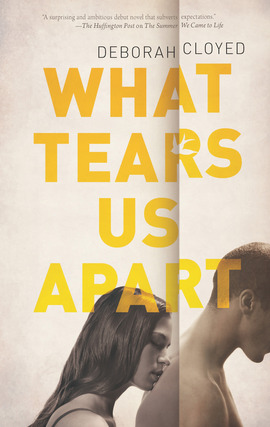
What Tears Us Apart
- اطلاعات
- نقد و بررسی
- دیدگاه کاربران
نقد و بررسی

February 25, 2013
The novel’s beginning, which describes what appears to be a violent gang rape, sets the wrong tone for what is ultimately a story of romance and self-discovery—however shot-through it is with tragedy and social awareness. When the action jumps back in time from the assault, so that every scene marches toward it, this choice not only saps character development of interest—how significant can any minor personal epiphany be in light of what’s to come?—but also casts the love story and its mounting sexual tension in an obscene light. Leda is a disaffected heiress of 32 who hopes to find meaning volunteering at a Kenyan orphanage—and to perhaps find romance with its handsome founder, Ita. She’s shocked by the Nairobi slum but also transformed by her exposure to this alien world. The presence of Ita’s disturbing childhood friend Chege, a machete-wielding gangster, is a blot on her growing happiness, but a shift into Ita’s perspective illuminates their friendship, clarifying the compromises and bonds necessary to survival in a slum. Ita and Leda’s relationship grows against the backdrop of the escalating—and then erupting—tensions of the December, 2007 presidential elections in Kenya. Leda is a well-realized character and her journey a sympathetic, if clichéd, one; but the structure of the novel is fatally flawed. Agent: Frances Black, Literary Counsel.

April 1, 2013
An American heiress volunteers for a month at an orphanage in the slums of Nairobi and falls in love while having to navigate political, racial and ethnic tensions. Looking for relevance and a true human connection she's never been able to find, Leda volunteers at a boys' orphanage in Kibera, in the sprawling slums of Nairobi. She is immediately and powerfully drawn to the director, Ita, who's traded in his dreams for the responsibility of child-rearing in tumultuous Kibera, as well as to the seven boys he is effectively raising. As attraction flares between them, Ita's complicated childhood friend Chege--now a violent gangster--is confused and threatened by their romance. Meanwhile, tensions are rising amid a volatile political atmosphere (the book is set during the protests after the December 2007 presidential election) which will come to a head just as Leda is preparing to leave, with intentions of coming back. But as violence erupts in the slums, actions, reactions and misunderstandings will find Leda, Ita and Chege making difficult choices. They will see themselves and each other at their best and at their worst and must decide how to move through fear and betrayal into forgiveness and redemption. This is at heart a romance between two people who find acceptance and love in each other, after lifetimes of never quite feeling at home wherever they were. The book is marred by a jarring starting point, given its overall tenor and message, and an ending that works but may be too easy for some readers. (It certainly is easier to find a happy-ever-after when there is money enough to bring about life-changing opportunities.) The narrative style jumps back and forth among various voices and timelines, which can be disorienting, though it lends a suspenseful edge to the events. Despite some flaws, a courageous romance that reminds us that many of our problems are of the first-world variety, and how lucky we are for it.
COPYRIGHT(2013) Kirkus Reviews, ALL RIGHTS RESERVED.




دیدگاه کاربران